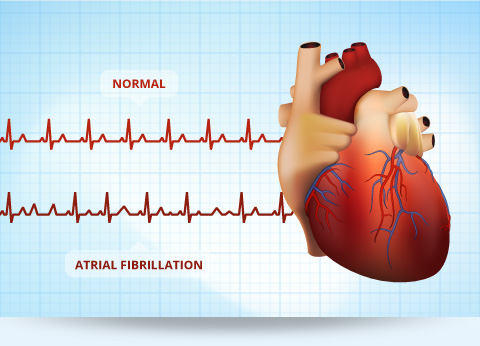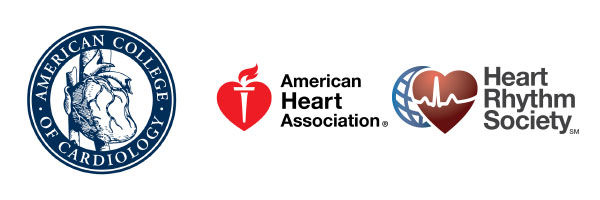Surgeon Q&A: What Should Patients Know About The New Class I AFib Ablation Recommendation?
Written By: Adam Pick, Patient Advocate, Author & Website Founder
Medical Expert: Gorav Ailawadi, MD, Chair of Cardiac Surgery, Michigan Medicine
Page Last Updated: June 6, 2025
As up to 35% of patients with heart valve disease also have atrial fibrillation (an irregular heartbeat), I needed to make sure you knew about this.
It was recently announced that AFib ablation, a procedure for treating AFib during valve surgery, was just promoted to a Class 1 Recommendation by the Society of Thoracic Surgeons in their newly published 2017 guidelines. This is really big news for patients because we have learned that many times AFib is not always properly treated during heart valve procedures.

To learn more about this development, I reached out to Dr. Gorav Ailawadi. So you know, Dr. Ailawadi is a heart valve and AFib specialist at Michigan Medicine in Ann Arbor, Michigan. I’ve been fortunate to see Dr. Ailawadi operate before. He’s not only a great guy but many patients from this community have had excellent results with Dr. Ailawadi. 🙂

Here are the highlights from our exchange:
1. What is the significance of the change in AFib ablation from Class 2 to Class 1 recommendation?
Class I indication means that there is strong evidence that the benefits outweigh the risks indicating that a procedure IS beneficial and effective, while Class II indication means there is moderate evidence that the benefits outweigh the risks and that a procedure MAY BE beneficial and effective.
The American College of Cardiology / American Heart Association/ Heart Rhythm Society guidelines last update in 2014 gave ablation at the time of valvular disease in patients with atrial fibrillation and valve disease requiring surgery a Class IIa indication. In 2016, the largest randomized trial of ablation versus no ablation at the time of mitral valve surgery in patients with atrial fibrillation was published in the New England Journal of Medicine demonstrating superior results in restoring sinus rhythm when atrial ablation was systematically performed during surgery.

This and other studies have led to the Society of Thoracic Surgeons putting forth a new document in 2017 and suggested the data for ablation for atrial fibrillation has become stronger and updated their recommendation to a Class I suggesting that the data is stronger and that ablation should be performed both in mitral disease as well as during other types of cardiac surgery. The ACC/ AHA/ HRS guidelines are expected also this year and we expect this group to also address the strength of recommendation of ablation during valvular surgery.
2. How might this impact the care of patients with valve disease and Afib?
There is increasing evidence that ablation is beneficial, safe, and effective (particularly during mitral valve surgery). Select surgeons had already adopted an aggressive approach to ablation. These data and recommendations should support a more widespread, aggressive approach to atrial fibrillation at the time of surgery.
3. How will this recommendation adjust your (or others) approach to patient care?
As mentioned, select surgeons were already aggressive with ablation. These recommendations should support all surgeons being more aggressive with ablation for AFib. Ultimately, this will benefit the patient more as AFib remains an extremely devastating disease.
I hope that helped you learn more about the reasons for the Class 1 Recommendation for AFib ablation. I know it helped me! 🙂
Many, many, many thanks to Dr. Gorav Ailawadi for taking the time (once again) to share his clinical expertise and research with the patients and caregivers in our community.
Related Link:
- Patient Alert: New AFib Guidelines Prevent Stroke for Heart Valve Patients
- Visit the AFib & Heart Valve Education Center
Keep on tickin!
Adam
|
Larry Sparks says on March 31st, 2017 at 1:37 pm |
|
Could ablation be performed as non invasive surgery to eliminate pace maker? |
 |
|
paddler1 says on March 31st, 2017 at 1:54 pm |
|
Had aortic valve replacement in 2010. No ablation was performed at that time. Is it possible and/or beneficial to have ablation done at this time? |
 |
|
herman white says on March 31st, 2017 at 2:19 pm |
|
I had aortic valve replacement, which resulted in Afib. Cardioversion (?) was unsuccessful. What should be my next treatment? |
 |
|
Christie Berner says on May 9th, 2017 at 12:10 pm |
|
I’ve had a mitral valve replacement (2004) and recent aortic valve replacement and tricuspid repair. Ablation was performed during both open-heart procedures. A-fib was my presenting symptom in 2003, and continued to be a problem despite medication, a pacemaker and multiple cardioversions. I feel terrible when I am in a-fib, so my cardiologist supports repeat procedures when I have a recurrence. I am hopeful that my 13th cardioversion done 6 weeks ago will be my last one! |
 |












